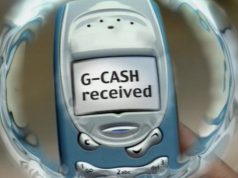Spam text messages bearing the full names of mobile users were recently the subject of worry on social media.
Data analyst Edson Guido asked his followers on August 30 if they have also received such a type of text message recently.
“Yung mga scam text messages ngayon sobrang alarming na. Dati blinoblock ko lang, pero ngayon pati pangalan ko alam na nila?? Ganito rin ba sa inyo?” Guido said.
“Kumusta naman yung data privacy natin? Yikes,” he added.
Guido shared that his relative also received a text message with his full name on it even if the number was not used in any applications.
“Yung isang relative ko, never ginamit ang number niya for any app pero nakatanggap pa rin ng message na may full name niya. Yung iba dyan tumatawag pa. Kaya again, ingat please,” he said.
“Ang nakakatakot kasi talaga dito ay paano kung sa susunod, hindi lang full name at number di ba?” Guido added.
Some Filipinos on Twitter also raised the same concern about receiving suspicious text messages that address them with their full names.
“So bakit yung mga spam messages may full name na,” physician Jai Cabajar tweeted.
“Palala na ng palala ang mga spam messages!!! MAY PANGALAN NA SILA NGAYON,” another user tweeted.
Others users shared some screenshots of these messages they received lately.
Based on the images, they were alerting the recipients about winning unknown contests. Recipients were also urged to click a link with a suspicious URL to get these supposed prizes.
Some mobile users noticed that the format of their names on the texts are similar to that of GCash usernames.
“Lately, nakaka-receive ako ng scam/spam/phishing messages. Ang kaibahan lang kaninang umaga may pangalan ko pa, ang format lang is yung name na same sa GCash,” one user said.
Another user also speculated that the scheme might be connected to online transactions on shopping platforms.
“Sabi ng iba dahil daw to sa online shopping, online payment. Na-eexpose yung details. Pero please naman, sana gumawa ng batas to regulate. Alarming na siya sa totoo lang,” one user said.
Associate Justice Marvic Leonen stated that having names of mobile users on unsolicited text messages is “very dangerous” as he raised concern on data privacy.
Unsolicited or scam text messages on our phones already contain our names. This means that there is a data provider out there that has leaked or sold or been careless about our information. This makes all of us now vulnerable.
Very dangerous.
— Marvic Leonen — maroon check (@marvicleonen) August 31, 2022
So far, neither GCash nor any shopping platform has issued any statement or warning about these reports to their customers.
Different types of text scams have been on the rise since the COVID-19 pandemic forced most Filipinos to conduct online transactions and payments.
The fake messages range from questionable job offers, product deals, delivery notices, and winning bogus contests.
RELATED: New text scam? Client asked of private info via SMS before supposed item delivery
Top cybersecurity firms considered these incidents as “smishing.”
Trendmicro defined smishing as “a form of phishing that uses mobile phones as the attack platform.”
Kaspersky, meanwhile, advised mobile users against engaging with these unknown senders.
“Do not respond nor click on links if they come from people or organizations you don’t know. Replying simply confirms to the sender that your phone number is active,” it said in a statement.
READ: What to do if you receive spam job offer via text message
In December last year, the National Privacy Commission launched a probe into telecommunication companies to determine if they exercised due diligence and accountability in transacting with data aggregators amid the text scam controversy.
“The Commission also sent orders to Union Bank of the Philippines, Inc. and GCash,” it said.
In May, however, several Filipinos continued to report receiving spam text messages.
RELATED: Gretchen Ho, others still receiving spam text messages, job offers
NPC said that a global syndicate could be behind the spam text messages.
Its Commissioner Raymund Liboro previously said that it is unlikely for the SMS to have come from contact tracing forms and apps. These forms and apps were utilized by establishments and local government units amid the COVID-19 pandemic.
The NPC has yet to release an update about the probe into the prevailing text message spam.









